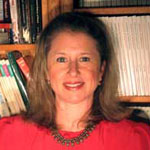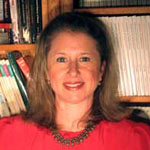Etel Solingen's Nuclear Logics receives top book award in political science

Etel Solingen's Nuclear Logics receives top book award in political science
- September 23, 2008
- American Political Science Association awards Solingen 2008 Woodrow Wilson Foundation Award for the best book published in the U.S. on government, politics, or international affairs
 Why do some states seek nuclear weapons while others renounce them? How have the nuclear
trajectories of East Asia and the Middle East differed? What do answers to these and
other questions say about North Korea and Iran's nuclear plans?
Why do some states seek nuclear weapons while others renounce them? How have the nuclear
trajectories of East Asia and the Middle East differed? What do answers to these and
other questions say about North Korea and Iran's nuclear plans?
These are some of the questions that political scientist Etel Solingen tackles in
her most recent book, Nuclear Logics, which received the American Political Science Association's (APSA) prestigious 2008
Woodrow Wilson Foundation Award for the best book published in the U.S. on government,
politics, or international affairs. Her work was also recognized with APSA's 2008
Robert Jervis and Paul Schroeder Best Book Award.
"A crucial, frequently underestimated variable in nuclear proliferation discussions
is the role of the political-economy of domestic ruling coalitions, and their preferred
models of political survival," says Solingen.
She argues that a state's decision to pursue nuclear weapons has a great deal to do
with the nature of its relations - or lack thereof - to the global political economy.
"Those countries whose leaders advance economic growth through openness to the global
economy are less likely to pursue nuclear weapons than countries whose leaders promote
'inward-looking' policies," she says. She provides the fundamental logic for this
argument in her award-winning book, linking economics and security to explain the
contrasting evolution of nuclear outcomes in East Asia and the Middle East.
Hailed as "valuable and timely" by former United Nations chief weapons inspector Dr.
Hans Blix, Solingen's work has received wide praise from experts in academia and beyond
and has served as the topic of numerous panels at professional conferences.
"Few, if any, other scholars at the intersection of international relations and comparative
politics possess Etel's breadth and depth of insight," says political science department
chair Mark Petracca.
As one of the world's foremost experts on an issue with potentially extreme consequences,
Solingen travels the globe as a frequent lecturer at renowned research institutes
including the Paris-based Fondation pour la Recherche Strategique, Frankfurt's Peace
Research Institute, the Chinese Academy of Social Sciences, Singapore's School of
International Studies, Jerusalem's Leonard Davis Institute of International Relations,
the Swiss Federal Institute of Technology, Hiroshima Peace Institute and Japan's Center
for Global Partnership.
She also participates in "Track II" meetings which bring together academics, foreign
government officials, and policy makers for off-the-record discussions on ways to
resolve regional conflicts and prevent the spread of weapons of mass destruction.
Most recently, she traveled to the Diplomatic Academy of the Russian Foreign Ministry
as part of the Northeast Asian Cooperation Dialogue where talks focused on efforts
to dispel tensions over North Korea's nuclear program. She has participated in similar
meetings sponsored by the University of California's system-wide Institute on Global
Conflict and Cooperation (IGCC) and has served as the institute's steering committee
chair for the past four years.
She is currently leading a study funded by the Carnegie Corporation to examine why,
when and how positive incentives and negative sanctions have been and are likely to
be effective in preventing nuclear proliferation.
"It's back to the basics," she says, as this project returns Solingen to her expertise
in international political economy.
Hear more about Solingen's work on international relations and nuclear proliferation
as she kicks-off the 2008-2009 Social Sciences Dinner Club series on October 23, 2008
at the UCI University Club. For more information, please visit /dinnerclub/ or contact Kathleen McDonald, kmcdonal@uci.edu or 949.824.1659.
Read more about Solingen's award winning book at http://press.princeton.edu/titles/8554.html.
Share on:




connect with us